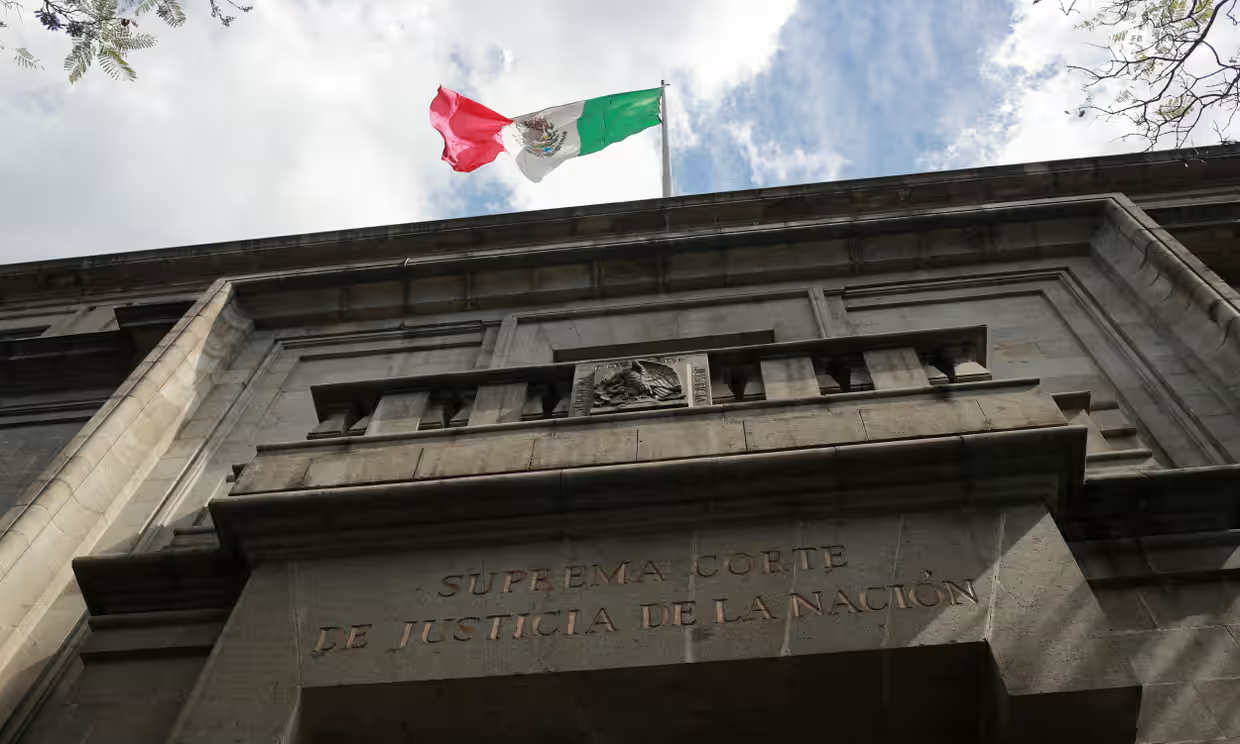Mexico supreme court judges resign over reforms to allow voters to elect judiciary

 Eight of the country’s 11 supreme court judges will stand down over reforms supported by President Claudia Sheinbaum
Eight of the country’s 11 supreme court judges will stand down over reforms supported by President Claudia Sheinbaum
In a move that has sparked diplomatic tensions and opposition street protests, Mexico is set to become the world’s only country to allow voters to choose all judges, at every level, starting next year.
The eight justices – including president Norma Pina – declined to stand for election in June 2025, a statement said, adding that one of the resignations would take effect in November and the rest next August.
The announcement came as the supreme court prepares to consider a proposal to invalidate the election of judges and magistrates. President Claudia Sheinbaum, however, has said that the court lacks the authority to reverse a constitutional reform approved by congress.

“Eight people intend to change a reform about the people of Mexico … Do they realise the magnitude?” she told a news conference on Wednesday.
A day earlier Sheinbaum suggested the judges’ real motive was to protect their retirement benefits.
“If they resign now, they will leave with all their retirement benefits,” Sheinbaum said. “If they do not resign now, they will no longer have their retirement benefits … which is a lot of money,” she added.
Former president Andrés Manuel López Obrador, who enacted the reforms in September before leaving office, argued the changes were needed to clean up a “rotten” judiciary serving the interests of the political and economic elite.
Critics fear that elected judges could be swayed by politics and vulnerable to pressure from powerful drug cartels that regularly use bribery and intimidation to influence officials.
During his six years in office, López Obrador often criticised the supreme court, which impeded some of his policies in areas such as energy and security.
Sheinbaum, a close ally of López Obrador who became Mexico’s first female president on 1 October, strongly supported the judicial reforms.
The changes sparked diplomatic friction with key economic partners the United States and Canada, upset financial markets and prompted a series of protests by judicial workers and other opponents.
Washington warned that the reforms threaten a relationship that relies on investor confidence in the Mexican legal framework.